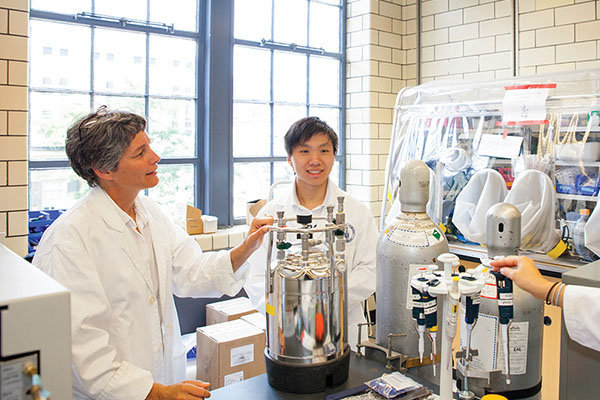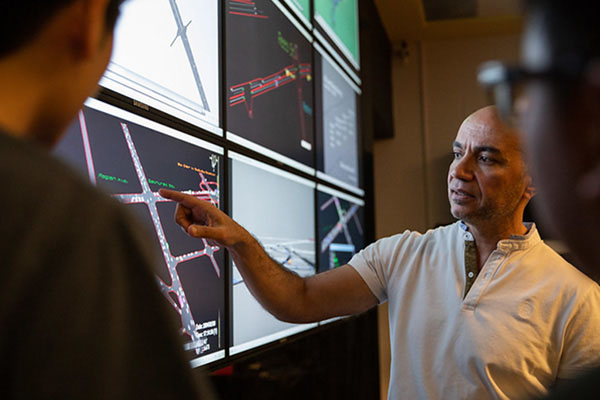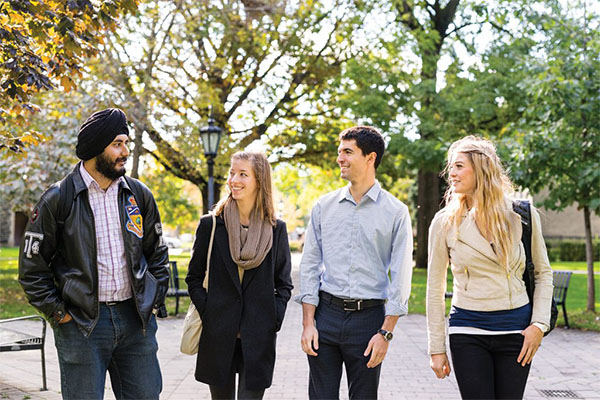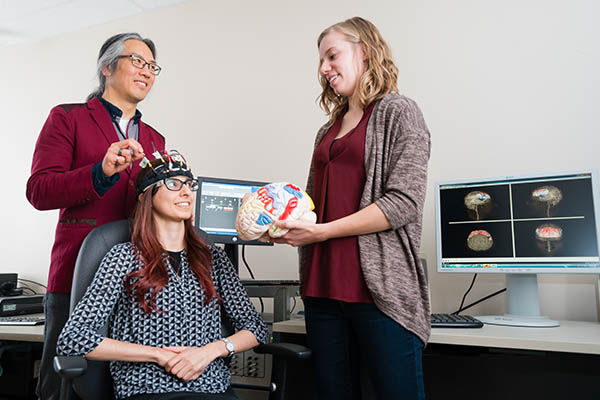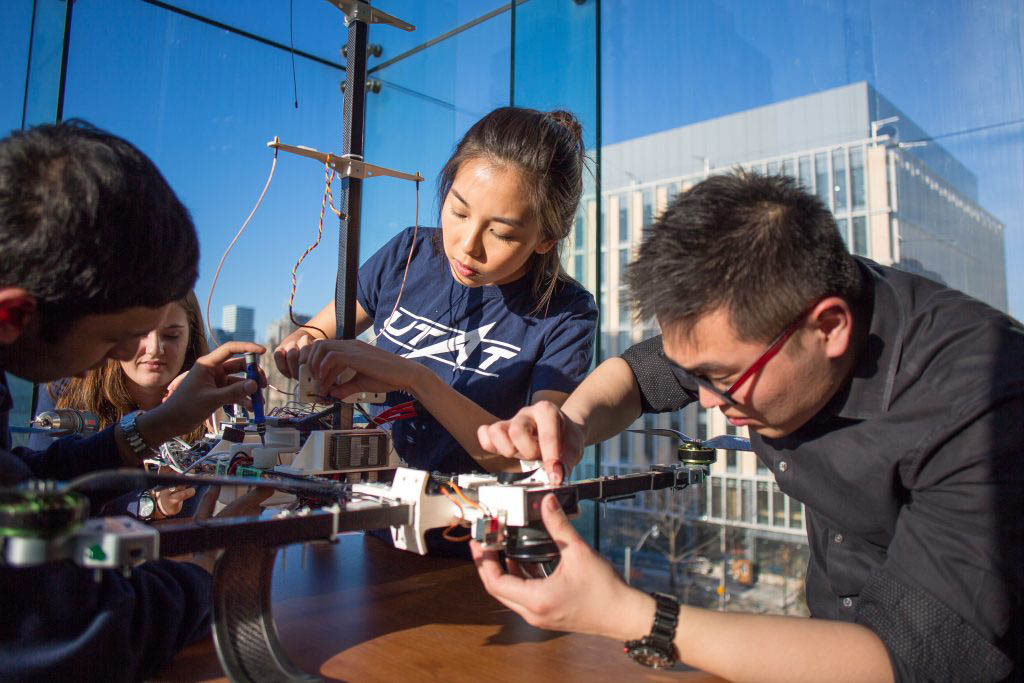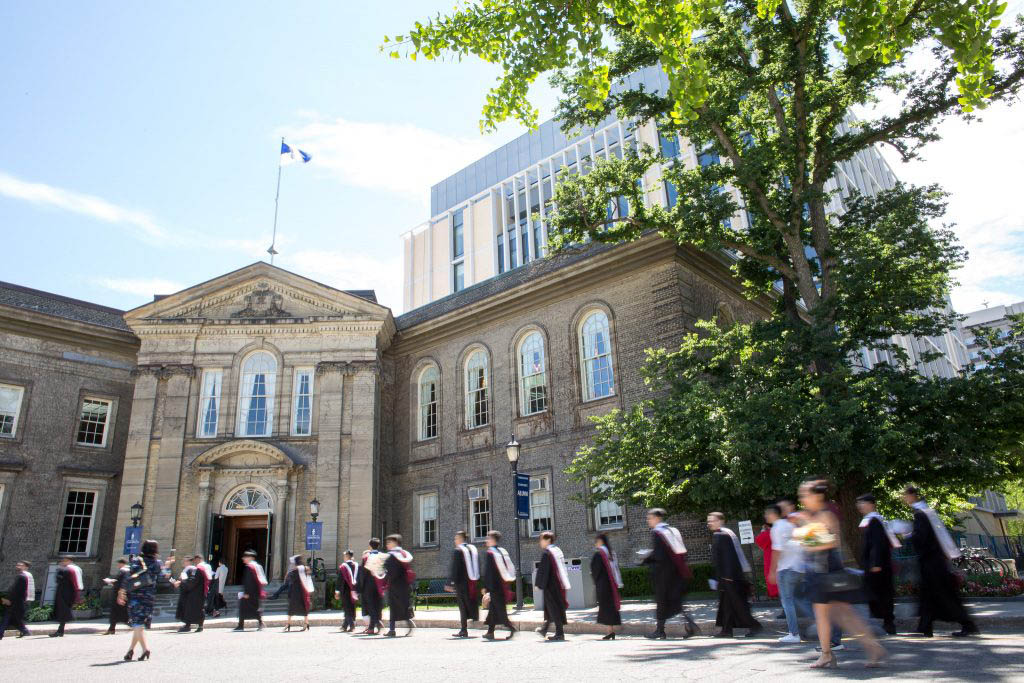CRANIA NeuroModulation Institute (CNMI)
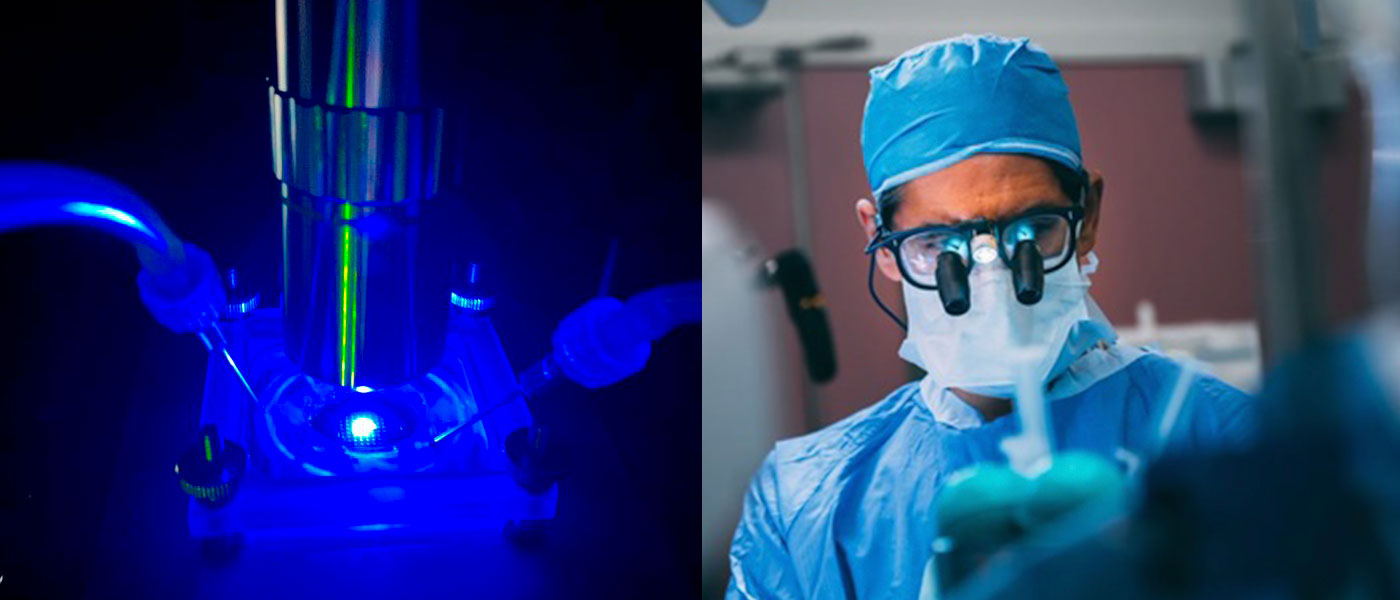
The CRANIA NeuroModulation Institute (CNMI) is the educational arm of CRANIA, operating within the Faculty of Applied Science & Engineering (FASE) bringing together experts in the fields of neuroscience and engineering in a collaborative hub for neuromodulation research.
The CNMI was conceived with the mission to engineer the next generation of brain scientists by providing students with the educational framework and state-of-the-art facilities necessary to be competitive in this expanding field, along with the opportunity to participate in neuromodulation-based research activities in health care institutions throughout Toronto.
At CNMI we aim to:
- Provide students with equal exposure to the clinical and engineering aspects of neuromodulation.
- Help students to develop & commercialize neuromodulation interventions and technology.
- Promote collaborative research projects between research institutions and industries.
-
Jan 2022 - Entrepreneurship in the Life Sciences Sector
-
March 2023 - Entrepreneurship in Biomedical Research
-
April 2023 - CNMI Workshop: Bruker-Neurescence Multiscope Technology
-
September 2023 - CRANIA 2023 Conference
- October 2024 - CRANIA 2024 Conference
Research & training opportunities
Get matched with available undergraduate, graduate or postdoctoral opportunities by joining our Trainee Connection Database.
Education & Training
Neuroscience & Clinical R&D
Interdisciplinary Collaboration
Commercialization of Innovation
Creativity, Diversity & Inclusivity
Engineering & Technology R&D
Partners
The CNMI will drive the field of neuromodulation forward by bringing together currently isolated departments within University of Toronto, hospitals, and research institutes. Participating clusters include, but are not limited to the following:
University of Toronto departments and institutes
Faculty of Applied Science & Engineering (lead faculty)
- Biomaterials & Biomedical Engineering
- Electrical & Computer Engineering
- Mechanical & Industrial Engineering
- Department of Chemical Engineering and Applied Chemistry
- Department of Materials Science & Engineering
Faculty of Arts & Science
- Department of Computer Science
- Department of Mathematics
- Department of Psychology
Faculty of Dentistry
Faculty of Medicine
- Department of Medicine
- Department of Occupational Science and Occupational Therapy
- Department of Pharmacology
- Department of Physiology
- Rehabilitation Science Institute
- Department of Surgery
Hospitals and research institutes
University Health Network
- Krembil Research Institute
- KITE Institute (formerly the Research Division of Toronto Rehabilitation Institute)
Center for Advancing Neurotechnological Innovation to Application (CRANIA)
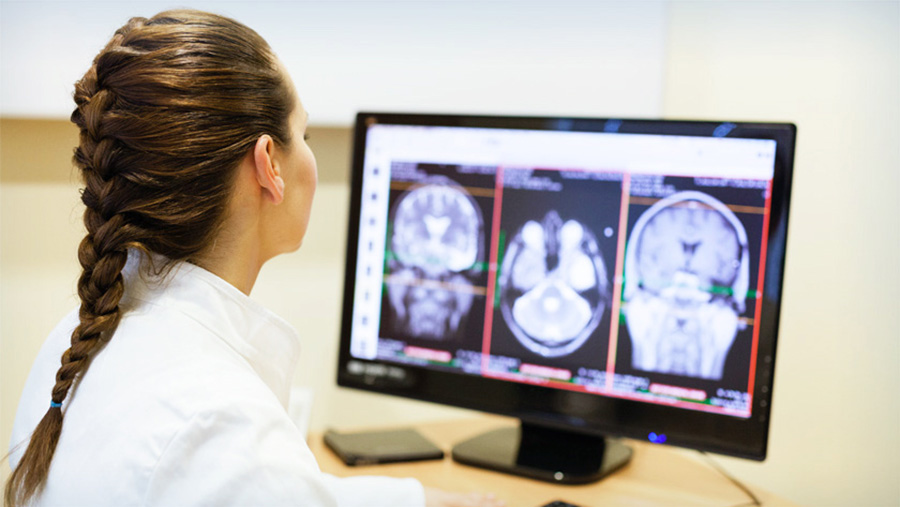
Leadership team

Dr. Taufik A. Valiante
Director
I am delighted to welcome you to the CRANIA NeuroModulation Institute, where Neuroscience research meets leading-edge technology and innovation.
Neuromodulation is the process of altering or modifying the brain, spinal cord or nerve function using advanced devices that interface with specific areas of the central or peripheral nervous system. Neuromodulation-based therapeutics hold great promise in transforming the prognosis of several disorders including Parkinson’s disease, epilepsy, stroke, depression, chronic pain, spinal cord injury, bladder dysfunction, anorexia, and Alzheimer’s disease – conditions that affect millions of Canadians. The field is experiencing unprecedented growth as technologically advanced therapies resulting from the convergence of machine learning, optical interfaces, and brain-computer interfaces are being rapidly developed and deployed. This is further evidenced by the dramatic market growth for neurotechnology, which is forecast to grow to $13.3 billion by 2022.
Despite this overwhelming progress, the full potential of the neuromodulation field has not been realized, owing to the scientific knowledge gap and disengagement between disparate neurotechnology disciplines. Our objective is to remove this barrier and specifically develop neuromodulation professionals instead of training engineers or clinicians. This new generation of integrative thinkers will be able to operate seamlessly in the neuromodulation space in clinical/engineering environments.
We aim to engineer the next generation of brain scientists by providing students an opportunity to develop the strong background necessary to be competitive in this expanding field. While success in research requires interdisciplinarity, collaboration and integration among varied fields of research, we believe that our vision for success can be best realized by encouraging students from diverse environments regardless of ethnicity, religion, gender identity or disability and promoting cross-cultural communication.
The CNMI is the first of its kind to connect the University’s varied departments, as well as affiliated research institutes and clusters in and around Toronto, to reduce boundaries between key disciplines, and improve the lives of patients and family members suffering from neurodegenerative conditions. As Canada’s leading University, we are clinical pioneers in neuromodulation research for brain disorders. We train engineers and basic and clinical scientists to become highly qualified neuromodulation experts who can seamlessly navigate the broad spectrum of disciplines and sectors at the nexus of neuromodulation education and research. We offer graduate courses in neuromodulation through participating graduate units, including lectures from neuromodulation experts. If you are interested in partnering with us or learning more about the CNMI, please feel free to contact us by email at info.cnmi@utoronto.ca. We look forward to hearing from you.
Sincerely,
Taufik Valiante
Collaborative specialization (CS) in neuromodulation
The collaborative specialization in neuromodulation is provided to master’s and doctoral students from participating graduate units through the School of Graduate Studies at the University of Toronto. The specialization consists of undertaking neuromodulation-related graduate courses within participating departments and attending workshops organized by the CRANIA Neuromodulation Institute (CNMI).
Learning objectives
The field of neuromodulation is experiencing unprecedented growth with novel therapies driven by machine learning, optical interfaces, electronics, neuroscience and big data analyses being rapidly developed. The coursework and workshops in the collaborative specialization in neuromodulation have been specifically designed to provide students with the skills and practical knowledge essential to advance the field of neuromodulation. Participating students will be able to:
- Explore bioengineering challenges and solutions at the neural interface.
- Obtain hands-on experience in various neuromodulation modalities.
- Apply their knowledge to solve critical problems in neuromodulation within an interdisciplinary environment.
Lead faculty of the collaborative specialization
Faculty of Applied Science and Engineering
Participating degree programs
Biomedical Engineering — MASc, PhD
Chemical Engineering and Applied Chemistry — MASc, PhD
Electrical and Computer Engineering — MASc, PhD
Materials Science and Engineering — MASc, PhD
Mechanical and Industrial Engineering — MASc, PhD
Medical Science — MSc, PhD
Supporting unit
University of Toronto CRANIA Neuromodulation Institute (CNMI)
About CS-neuromodulation
What is CS-neuromodulation?
The collaborative specialization in neuromodulation is a joint venture by the Faculty of Applied Science and Engineering and the CRANIA Neuromodulation Institute. The CS aims to provide inter-disciplinary training opportunities for participating students and promote collaborative research in the field of neuromodulation. Upon completion of the CS, eligible students will receive the notation ‘Completed collaborative specialization in neuromodulation’ on their transcript.
Why CS-Neuromodulation?
The field of neuromodulation and its applications in the treatment of brain and spinal cord disorders is growing at an unprecedented rate, driven by advances in machine learning, optical interfaces, electronics and big data analyses. The CS-Neuromodulation will provide graduate students with the knowledge required to pursue a career in Neural Engineering and operate seamlessly in both an industrial and clinical setting.
Who is Eligible?
UofT students who have enrolled for a Master’s or PhD in a participating degree program are eligible to apply. A roadmap for eligible students to obtain their CS in Neuromodulation is detailed at the bottom of the section.
CS requirements
Admission to the program is open to all students who are registered in one of the participating degree programs. Students enrolled in the collaborative specialization in neuromodulation must complete the specific course requirements of the collaborative specialization, in addition to or within those requirements for the degree program in their home graduate unit, where possible.
CS-neuromodulation: Master’s level
Admission requirements
- Applicants must meet the admission requirements of both the home graduate unit and the collaborative specialization (CS).
- Applicants must apply to and be admitted to both the CS and a participating master’s degree program.
Specialization requirements
- The thesis topic must be in the neurotechnology/neuromodulation area. Participating students are encouraged to have a co-supervisor or a member of their supervisory committee with research expertise in an area of study different from their home department.
- The course BME1500H Topics in Neuromodulation is mandatory for all students. Students must attend all lectures in the course and present a project for course evaluation.
- In addition, all master's-level students must complete at least 0.5 full-course equivalent (FCE) chosen from the approved list of graduate courses (see below).
- Students must attend the professional development workshops organized by CNMI as part of the CS.
- Participating students from graduate units in the Faculty of Applied Science and Engineering cannot count the modular (0.25 FCE) MSC courses that are not letter graded towards the total FCE requirements of their home program.
- Participating Institute of Medical Science students may double-count the courses taken as part of the CS towards their degree, except for some of the 0.25 FCE modular MSC courses, which are not letter graded. These students should consult with their graduate coordinator or the CNMI program coordinator to confirm this before opting for the modular elective courses.
CS-neuromodulation: Doctoral level:
Admission requirements:
- Applicants must meet the admission requirements of both the home graduate unit and the collaborative specialization (CS).
- Applicants must apply to and be admitted to both the CS and a participating doctoral degree program.
- Students who have already taken the CS during their master’s degree program will not be eligible to take it again during their PhD.
Specialization requirements
- The thesis topic must be in the neurotechnology/neuromodulation area.
- Participating students are encouraged to have a co-supervisor or a member of their supervisory committee with research expertise in an area of study different from their home graduate unit.
- The course BME1500H Topics in Neuromodulation is mandatory for all students. Students must attend all lectures in the course and present a project for course evaluation.
- In addition, all doctoral-level students must complete at least 0.5 full-course equivalent (FCE) chosen from the approved list of graduate courses (see below).
- Students must attend the professional development workshops and seminars organized by CNMI as part of the CS.
- In addition, doctoral students must attend the Annual CRANIA Research Day every year and are encouraged to present their research work at least once.
- Participating students from graduate units in the Faculty of Applied Science and Engineering cannot count the modular (0.25 FCE) MSC courses that are not letter graded towards the total FCE requirements of their home program.
- Participating Institute of Medical Science students may double-count the courses taken as part of the CS towards their degree, except for some of the 0.25 FCE modular courses, which are not letter graded. These students should consult with their graduate coordinator or the CNMI program coordinator to confirm this before opting for the modular elective courses.
School of Graduate Studies (SGS) CS-neuromodulation calendar
Graduate courses
The complete of list courses offered by the participating units which fulfill the collaborative specialization requirements can be found on the CS-neuromodulation SGS Website.
The timetable of offered courses is updated as information from the participating department becomes available. Please contact the appropriate departments for availability and enrolment information and to confirm course times/locations.
Core course
The course BME1500H Topics in Neuromodulation (0.5 FCE) is mandatory for all students. In addition, all students must complete at least 0.5 full-course equivalents (FCEs) chosen from the list of approved courses (listed below). Students are encouraged to select this elective course from a non-home faculty. Please note that some modular courses are worth 0.25 FCE. In this case, students will have to complete two 0.25 FCE courses to complete the 0.5 FCE elective course requirement.
Elective courses
Biomedical Engineering
BME1802H: Applying Human Factors to the Design of Medical Devices (0.5 FCE)
BME1473H: Acquisition and Processing of Bioelectric Signals (0.5 FCE)
BME1472H: Fundamentals of Neuromodulation Technology and Clinical Applications (0.5 FCE)
JEB1444H: Neural Engineering (0.5 FCE)
JPB1071H: Advanced Topics: Computational Neuroscience (0.5 FCE)
BME1466H: Advanced Topics on Magnetic Resonance Imaging (0.5 FCE)
Electrical & Computer Engineering
ECE516H1: Intelligent Image Processing (0.5 FCE)
ECE1656H: Nonlinear Modeling and Analysis of Biological Systems (0.5 FCE)
ECE537H1: Random Processes (0.5 FCE)
ECE1475H: Bio Photonics (0.5 FCE)
ECE1774H: Sensory Cybernetics (0.5 FCE)
ECE1777H: Computer Methods for Circuit Simulation (0.5 FCE)
ECE1647H: Introduction to Nonlinear Control Systems (0.5 FCE)
Mechanical & Industrial Engineering
MIE1359H: Engineering Cell Biology and Micro-Nanoengineered Platforms (0.5 FCE)
MIE1080H: Introduction to Healthcare Robotics (0.5 FCE)
MIE1208H: Microfluidic Biosensors (0.5 FCE)
MIE1232H: Microfluidics and Laboratory-on-a-Chip Systems (0.5 FCE)
Materials Science & Engineering
JMB1050H: Biological & Bio-Inspired Materials (0.5 FCE)
MSE1038H: Computational Materials Design (0.5 FCE)
Chemical Engineering & Applied Chemistry
CHE1333H: Biomaterials Engineering for Nanomedicine (0.5 FCE)
CHE1334H: Organ-on-a-Chip Engineering (0.5 FCE)
CHE1053H: Electrochemistry (0.5 FCE)
Medical Science
MSC1006H: Neuroanatomy (0.5 FCE)
MSC1087H: Neuroimaging Methods Using Magnetic Resonance Imaging (0.5 FCE)
MSC1085H: Molecular Approaches to Mental Health and Addictions (0.5 FCE)
MSC1102H: Psychiatric Implications of Traumatic Brain Injury (0.25 FCE)
MSC1104H: Neurodegenerative Disease (0.25 FCE)
MSC1109H: Introduction to Neuroimaging (0.25 FCE)
MSC1113H: Radiomics and Machine Learning for Medical Imaging (0.25 FCE)
Workshops
All students must attend the professional development workshops organized by CNMI for CS-Neuromodulation students. The workshops topics may change from year to year and may include hands-on workshops on various neuromodulation modalities and lectures. These workshops are designed to equip CS students with technical and professional skills that will complement the knowledge required from the CS coursework and will be offered 2-3 times a year. Information about workshops will be posted on Quercus periodically. Participation in the workshops is mandatory and students are expected to sign up for the workshops via Quercus.
Applying to CS-Neuromodulation
- The collaborative specialization in neuromodulation is an inter-departmental program for graduate students. The program does not issue degrees.
- Students interested in joining must first apply to and be enrolled in one of the participating degree programs. Once accepted into a program, students can apply for admission to the collaborative specialization in neuromodulation. Students are encouraged to enroll in the collaborative specialization as soon as possible after beginning their graduate studies.
- The student’s thesis requirement for the home program must be focused on a topic in the area of neuromodulation.
- It is the applicant’s responsibility to find an appropriate supervisor to supervise them and support their thesis research. Applicants are expected to contact and meet with potential supervisors among the core faculty of the collaborative specialization before applying for admission into the CS-neuromodulation. The supervisor must provide a letter of recommendation in support of the student’s application to the collaborative specialization.
- Participating students are also encouraged to have a co-supervisor or a member of their supervisory committee with research expertise in a different field of study to their home department, although this is not mandatory.
- PhD students who have already completed the CS-neuromodulation during their master’s are not eligible to enroll again during their PhD.
- As soon as possible after beginning your studies, complete the application form below.
- Contact info.cnmi@utoronto.ca with any questions or concerns you may have.
CS completion
Upon completion of all CS requirements, students must fill-in and submit the CS-neuromodulation completion form. This must be submitted as soon as students have defended their thesis.
Contact
Please contact the CNMI Program coordinator at info.cnmi@utoronto.ca for any queries regarding the collaborative specialization in neuromodulation.
Suggested CS-neuromodulation roadmap for master's students (MSc/MASc)
Year 1
- Find and contact a research supervisor who works on Neuromodulation/Neurotechnology in a participating department
- Obtain supervisor’s letter of support for enrollment into the CS. Email this letter to info.cnmi@utoronto.ca
- Complete and submit CS application form
- Enroll in BME1500 (Fall session course)
- Start work on thesis project - Neuromodulation/Neurotechnology related
- Attend CNMI Workshops (Quercus)
- Attend the annual CRANIA conference
Year 2
- Enroll in BME1500 (Fall session course) if not completed in Y1
- Enroll in 0.5 FCE CS elective(s)
- Attend CNMI Workshops (Quercus)
- Thesis completion and dissertation submission
- Submit CS completion form
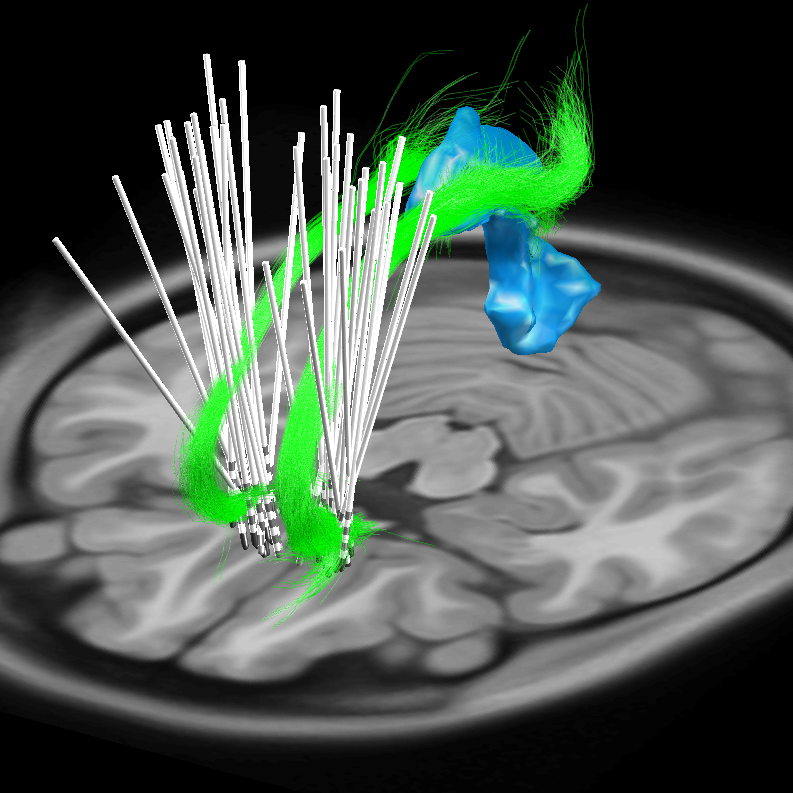
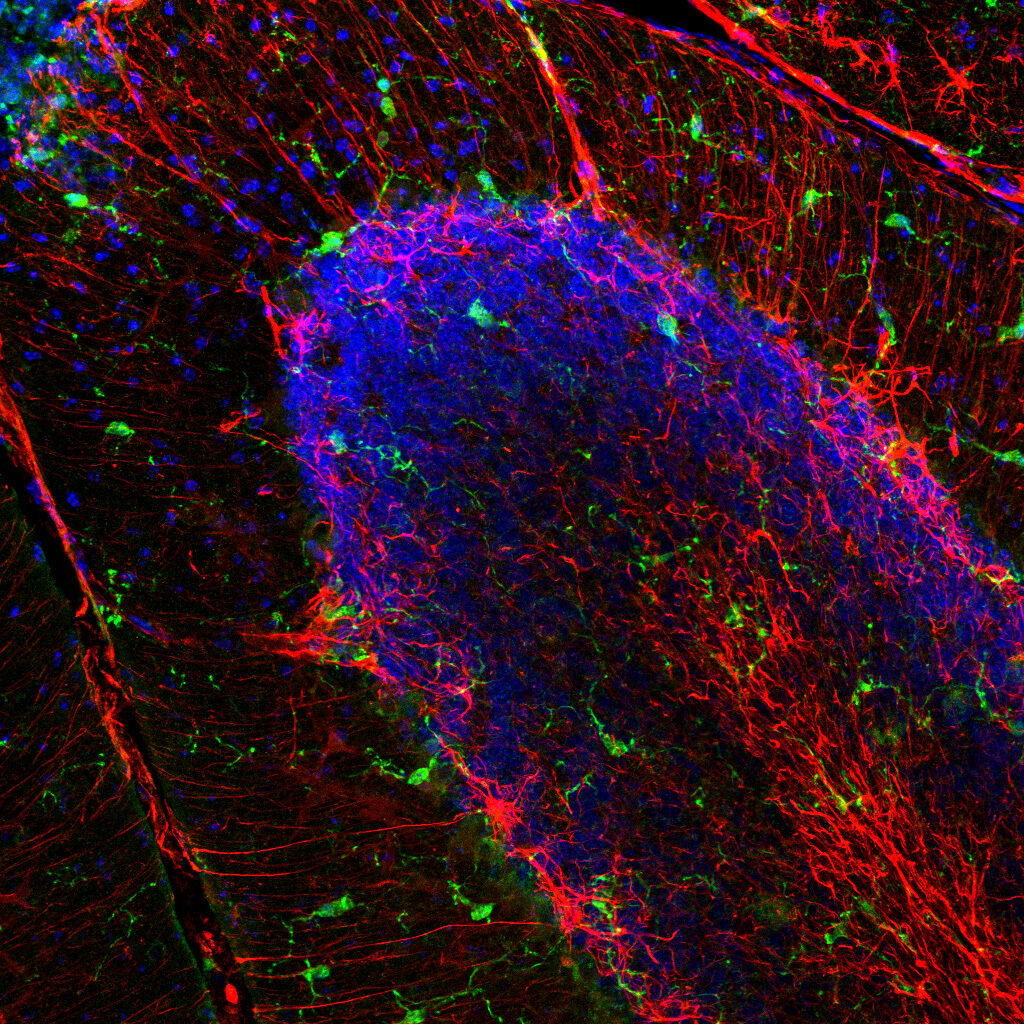
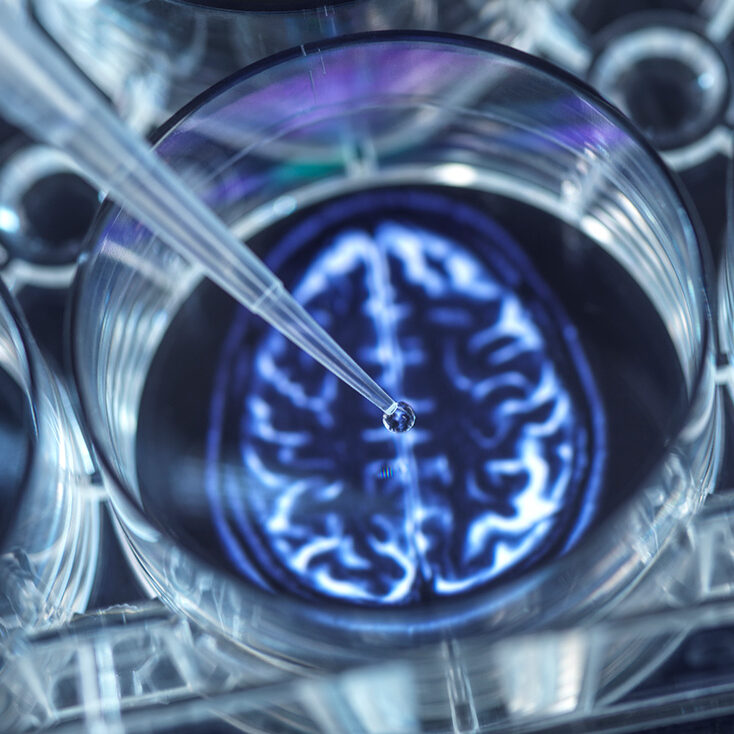
Suggested CS-neuromodulation roadmap for PhD students
Year 1
- Find and contact a research supervisor who works on Neuromodulation/Neurotechnology in a participating department
- Obtain supervisor’s letter of support for enrollment into the CS. Email this letter to info.cnmi@utoronto.ca
- Complete and submit CS application form
- Enroll in BME1500 (Fall session course)
- Start work on thesis project - Neuromodulation/Neurotechnology related
- Attend CNMI Workshops (Quercus)
- Attend the annual CRANIA conference
Year 2
- Enroll in BME1500 (Fall session course) if not completed in Y1
- Enroll in 0.5 FCE CS elective(s)
- Continue work on research project
- Attend CNMI Workshops (Quercus)
- Attend the annual CRANIA conference
Year 3
- Enroll in required courses (BME1500, 0.5FCE elective) if not completed in Y 1/2
- Continue work on research project
- Attend CNMI Workshops (Quercus)
- Present at annual CRANIA conference
Year 4
- Ensure that required courses are completed
- Attend CNMI Workshops (Quercus)
- Thesis completion and Dissertation submission
- Submit CS completion form
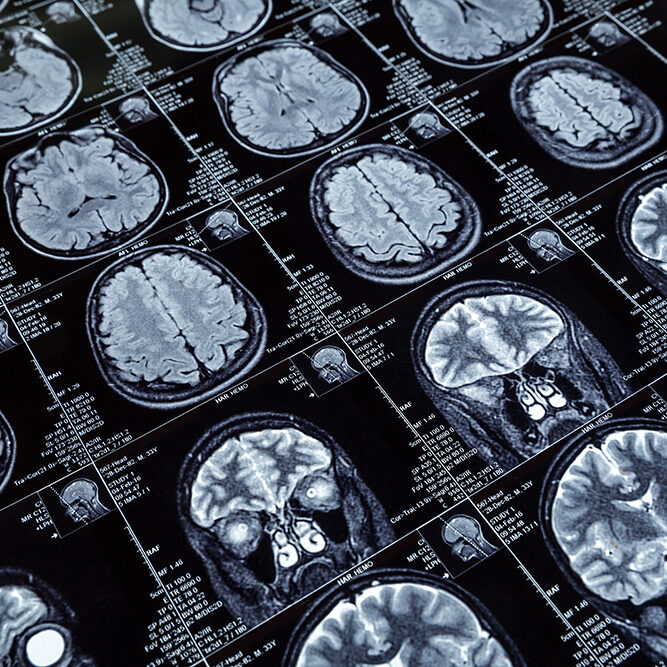
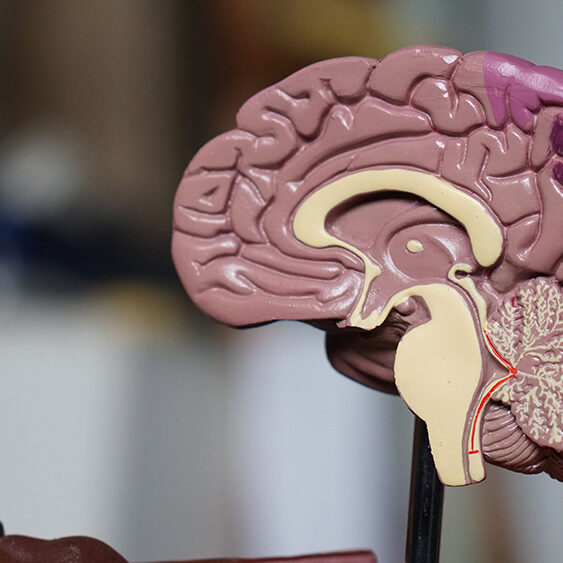
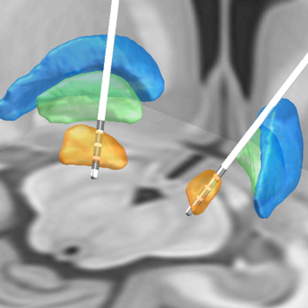
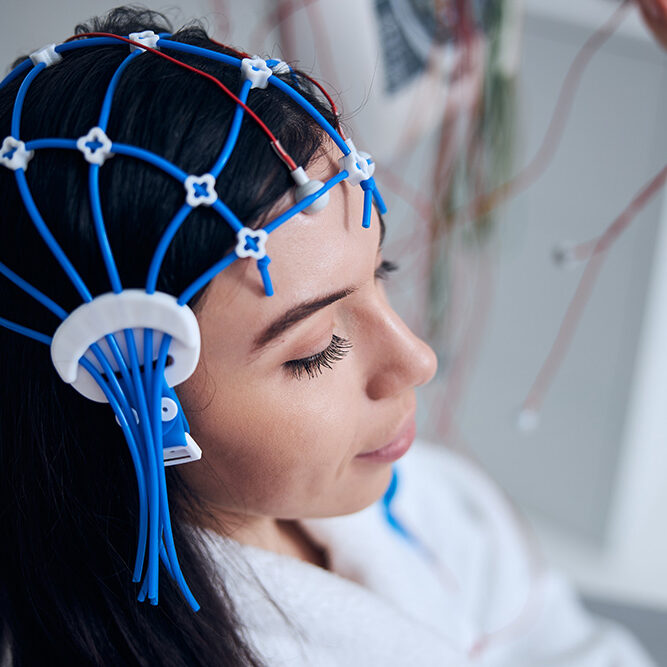

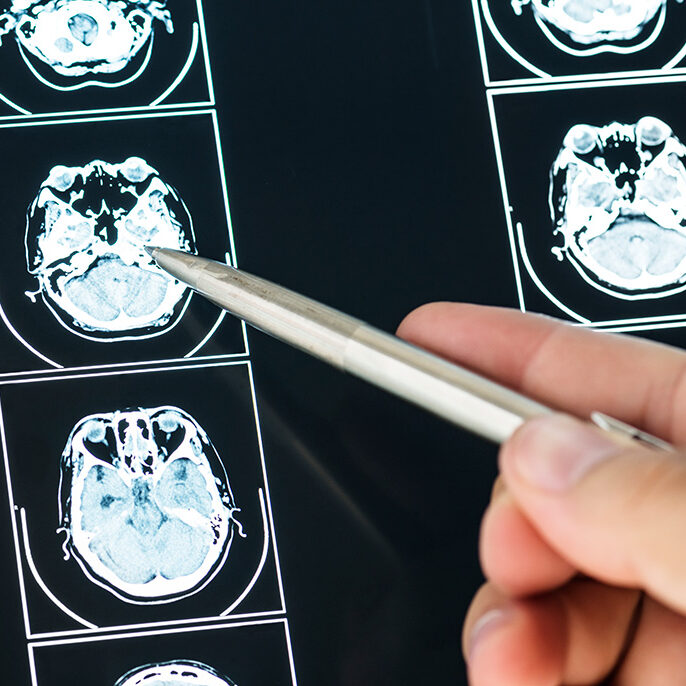
Current initiatives & projects
Contact information
- Dr. Suhail Asrar, Manager
info.cnmi@utoronto.ca - Join our Trainee Connection Database




